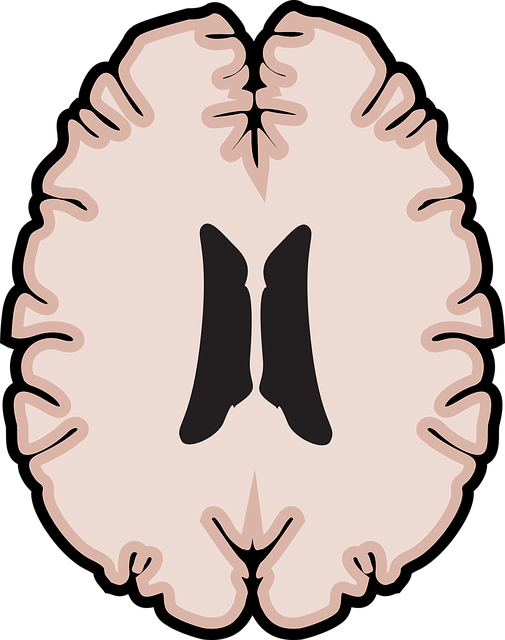Lakewood Gambling Therapy employs a holistic approach to mental health data collection, combining quantitative assessments with qualitative interviews to gain deep insights into clients' psychological well-being, especially gambling-related issues. They use statistical analysis and qualitative techniques like thematic analysis to identify trends and personal narratives. Techniques such as journaling and risk assessment help tailor interventions, including Compassion Cultivation Practices and Mind Over Matter principles. Data-driven insights lead to customized treatments, improved outcomes, and higher client satisfaction at Lakewood Gambling Therapy.
“Unveiling the Power of Data: Transforming Mental Health Care at Lakewood Gambling Therapy
This comprehensive guide explores the intricate process of mental health data analysis, focusing on how Lakewood Gambling Therapy leverages this powerful tool for patient improvement. From understanding the nuances of data collection to advanced interpretation techniques, we delve into strategies that drive evidence-based practices. By applying insights gained from data, Lakewood Gambling Therapy enhances treatment efficacy, ultimately fostering better outcomes for individuals seeking support.”
- Understanding Mental Health Data Collection at Lakewood Gambling Therapy
- Techniques for Analyzing and Interpreting Gathered Data
- Applying Insights to Enhance Treatment Approaches at Lakewood Gambling Therapy
Understanding Mental Health Data Collection at Lakewood Gambling Therapy

At Lakewood Gambling Therapy, understanding mental health data collection is paramount to delivering effective care. The center utilizes a multi-faceted approach, incorporating both quantitative and qualitative methods to gather comprehensive insights into clients’ psychological well-being. This includes structured assessments, surveys, and interviews designed to capture the nuances of gambling-related issues and underlying mental health conditions. By integrating these data sources, therapists gain valuable perspectives on clients’ experiences, behaviors, and emotional states, enabling them to tailor treatments accordingly.
Compassion Cultivation Practices and Mind Over Matter Principles form the backbone of Lakewood’s therapeutic framework. The former fosters a culture of empathy and understanding, reducing the often-damaging Mental Illness Stigma Reduction Efforts. Through these practices, therapists create safe spaces where clients feel empowered to open up and share their struggles honestly. This honest communication is essential for accurate data interpretation, ensuring that interventions are not only effective but also aligned with each individual’s unique needs and challenges.
Techniques for Analyzing and Interpreting Gathered Data

When delving into mental health data analysis and interpretation, a multifaceted approach is essential. Techniques such as statistical analysis and qualitative methods play a crucial role in understanding complex patterns within the data collected from clients undergoing Lakewood Gambling Therapy. Statistical tools enable the identification of significant correlations and trends, while qualitative techniques like thematic analysis enrich the context by revealing deeper insights and personal narratives.
For instance, mental wellness journaling exercises can provide valuable qualitative data, offering a window into individuals’ experiences with gambling therapy. Similarly, risk assessment methodologies are instrumental for mental health professionals to gauge potential risks and tailor interventions accordingly. Additionally, trauma support services may employ specialized analysis techniques to address and interpret trauma-related disclosures, ensuring client safety and effective treatment.
Applying Insights to Enhance Treatment Approaches at Lakewood Gambling Therapy

At Lakewood Gambling Therapy, leveraging insights from mental health data analysis has been transformative. By delving into trends and patterns within their patient population, therapists can tailor treatment approaches to address specific needs. For instance, analyzing data on treatment outcomes and client feedback has helped identify areas where Mindfulness Meditation techniques significantly boost confidence among individuals seeking help for gambling addictions. This newfound knowledge enables therapists to incorporate these practices more effectively into the therapy process.
Furthermore, Mental Health Awareness initiatives have been enhanced through data-driven insights. By tracking patient progress over time, therapists can now demonstrate the tangible benefits of their approach, fostering a deeper sense of trust and engagement. This not only improves adherence to treatment plans but also encourages patients to embrace practices like Mindfulness Meditation as part of their ongoing mental wellness routines. As a result, Lakewood Gambling Therapy is experiencing higher client satisfaction rates and more positive outcomes, marking a significant step forward in the field of gambling therapy.
Mental health data analysis is a powerful tool that, when applied correctly, can significantly enhance treatment outcomes at institutions like Lakewood Gambling Therapy. By understanding how and why individuals engage in gambling behaviors, as well as interpreting the collected data effectively, therapists can tailor their approaches to better serve their clients. This personalized treatment not only improves individual success rates but also contributes to the overall advancement of mental health support within the community, making Lakewood Gambling Therapy a leader in innovative therapy practices.









